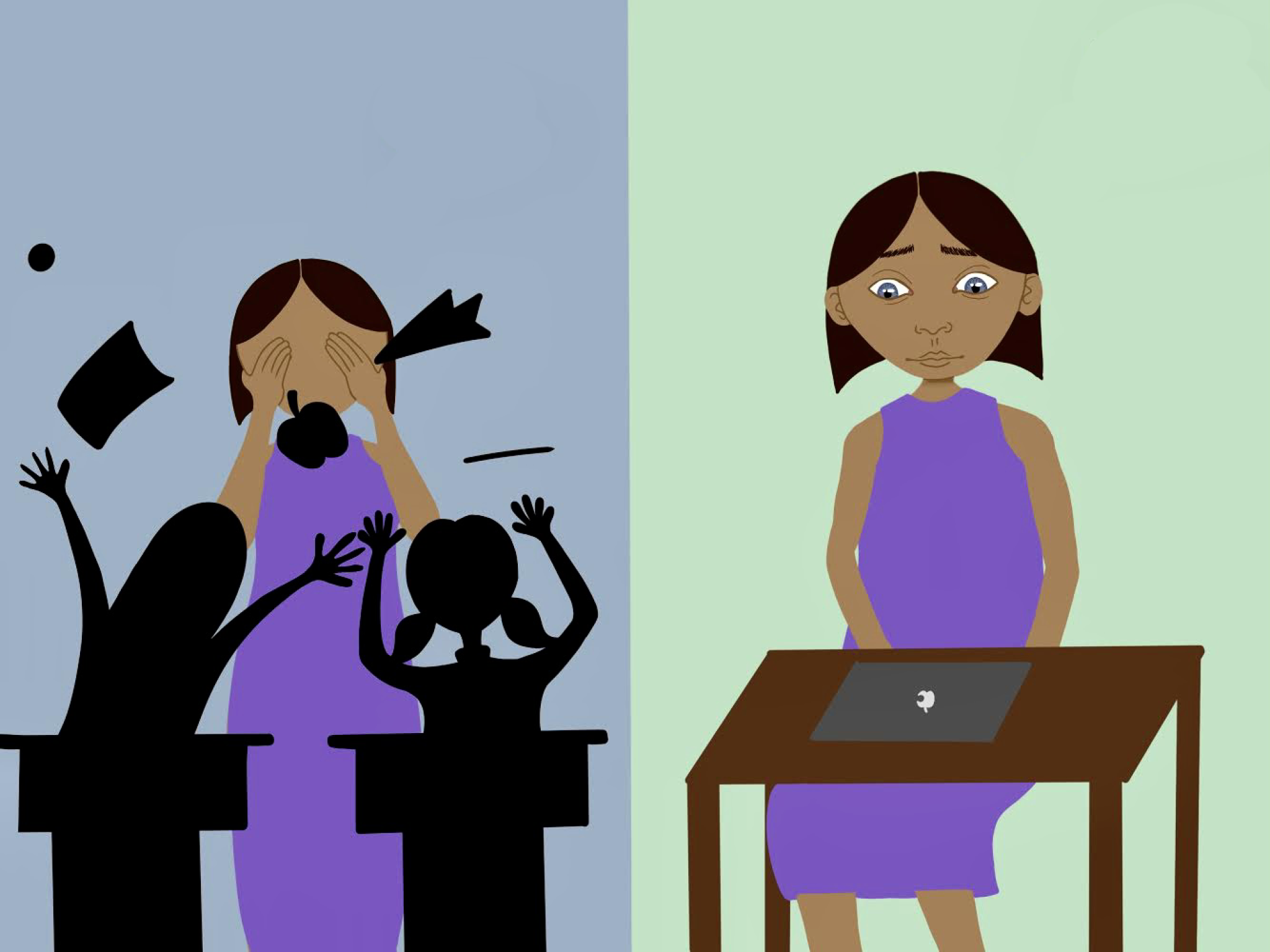“Substitutes replaced teachers when teachers couldn't get to school because they were either at home with their kids or on a field trip,” explained Huseyin Kulunk, a long-time Berkeley High School (BHS) substitute teacher. “Nowadays, they're already at home with their kids and no one's out on field trips…. I really don't know what my exact job is as a substitute now.”
Mr. Kulunk, as he is known by many BHS students, subbed only twice this month after taking nearly a year off of substitute teaching due to distance learning. Though he has slowly adjusted to the new technological landscape, the day-to-day life of Kulunk and other substitute teachers look a lot different than they did before schools shut down.
When BHS closed down in the spring of 2020, virtually all substitute teachers halted their jobs immediately. Despite the absence of work available, Berkeley Unified School District (BUSD) averaged out the monthly pay of each substitute, and kept paying them through the duration of that school year.
While substitutes were invited back to work for the 20-2021 school year, “availability of jobs just plummeted,” said David Alcala, BHS substitute teacher of five years. Aside from long term teaching opportunities, Alcala and other substitute teachers have been working anywhere between a couple times a month and four days a week.
Before entering the new school year, however, Alcala described being in a “limbo phase” with the administration, where “we didn't know if we were coming back or how much we were going to be needed for the next year.” Due to a reasonable assurance agreement with the administration, essentially confirming an available job next year, substitutes were not able to apply for unemployment benefits despite not knowing how much their job would be available the next year.
Alcala, as well as other substitutes, have managed to adapt well to online teaching, helping to gain more teaching opportunities. Unfortunately, many older substitutes can’t say the same, particularly for technology-related reasons.
“The initial [thing we] noticed was the digital divide,” said Vice Principal Tonia Coleman. While the district made efforts to offer technological support, “the substitutes that were not able to navigate Zoom just could not sub this year.” Coleman estimated about six or seven BHS substitutes of at least four years that were not able to teach during distance learning this year.
Additionally, the fact that substitutes sent out their zoom link to several classes a week would often lead to ‘zoom bombing’ incidents by BHS students, sometimes even taking control of the room and kicking out the substitute. Though according to Coleman, the Clever authentication barrier significantly helped with these incidents, which disproportionately impacted subs.
Larry Kelp, a substitute of 20 years in the music department, has not worked since school shut down initially. “Even though I tried, I just gave up in frustration,” Kelp said. “And I also realized that doing it on Zoom is not what brought me satisfaction from substitute teaching.”
Because Kelp largely chose substitute teaching as a retirement job, he did not feel a significant financial impact. “I am not rich, but I don't think money could buy the experience I've had the past 20 years,” Kelp said, explaining that that experience has simply not been the same over Zoom.
Christopher Reid, on the other hand, managed to learn the ins and outs of Zoom over the spring. Thus, he’s been able to work more than most subs during distance learning. “It's all been a learning process, but in my case I just did much prep ahead of time to feel as comfortable as I could,” Reid said regarding adjusting to Zoom.
Reid has felt the lack of personal connection as well. “Even though it's silly,” Reid likes to start the class with taking roll call and asking students about their day. Additionally, he likes to reserve the last five minutes of class to play a song on his accordion for the class; “just something to brighten somebody’s day and mix up the routine,” Reid said.
The administration did offer in-person substitute teaching opportunities at the elementary schools, as an alternative to distance learning. Additionally, both Kulunk and Kelp have plans to return to substituting full-time once Berkeley schools begin to open back up.
“We all thought [distance learning] was gonna be a disaster, and it exceeded our expectations dramatically,” Reid said. “It’s far from perfect, but oddly enough, there's some level of connection through Zoom. If we can persuade students to turn their cameras on, at least.”





